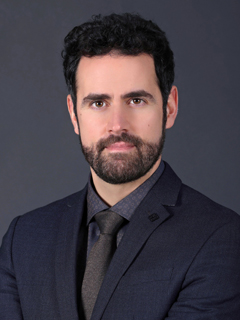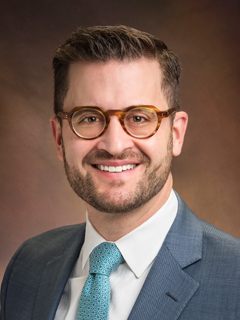HOW CAN WE HELP YOU? Call 1-800-TRY-CHOP
In This Section
CHOP Named One of the Best Children’s Hospitals in the Nation

Congratulations to our Children's Hospital of Philadelphia doctors, nurses, physicians, and staff whose dedication to our mission contributed to our ranking as one of the best children's hospitals in the nation by U. S. News & World Report. We're also excited by research that helped to develop the first stable, universal MHC-I molecule. And more congrats go to Allison Heath, PhD, who represented CHOP at the AWS Summit to promote open science. Our news highlights wrap up with a model developed by CHOP researchers that predicts a rise in kidney stones over the next seven decades.
U.S. News & World Report Names CHOP One of Best Children's Hospitals in the Nation
U.S. News & World Report once again named Children's Hospital of Philadelphia one of the best children's hospitals in the nation. For 2023-2024, the hospital ranked No. 1 in the Mid-Atlantic and state of Pennsylvania and No. 4 on the honor roll nationally. In addition, eight of 10 CHOP clinical specialties ranked in the top five, including the Division of Orthopaedics, which took the No. 1 position.

CHOP once again ranked as one of the best children’s hospitals in the nation by U.S. News & World Report.
CHOP's strong reputational ranking is a source of pride, as well as the fact that our doctors continue to be recognized as the No. 1 ranked Department of Pediatrics in the country by U.S News & World Report for 11 consecutive years. CHOP extends its thanks to all the teams who help us to deliver the best healthcare to every child who needs it while forging deep connections with children and their families.
CHOP is and always will be committed to providing safe, high quality care to patients and families who come from all over the country — and the world — seeking the kind of breakthroughs we make every day.
Visit CHOP's U. S. News & World Report coverage to learn more.
Mechanistic Molecular Immunology Researchers Develop Stable MHC-I Molecules
Researchers from the Mechanistic Molecular Immunology Lab led by Principal Investigator Nikolaos Sgourakis, PhD, along with the help of chemical biologist George Burslem, PhD, and his lab at the University of Pennsylvania, engineered stable Class I major histocompatibility complex (MHC-I) molecules, which are crucial to the immune system, that can be produced rapidly and at scale. This will allow researchers not only to develop vaccines and immunotherapies more quickly but also to identify molecules that can work broadly across the population.
"The findings in this paper have the potential to revolutionize this field, both in the way we manufacture these molecules and the rate at which we can screen for effective and universal immunotherapies," said Dr. Sgourakis, senior author of the study, which was published in the Proceedings of the National Academy of Sciences.
MHC-I molecules display peptide fragments of proteins from within the cell on the cell surface, "presenting" them to the immune system, which continuously scans the body for foreign or toxic antigens. The identification of foreign peptides triggers a cascade that allows cytotoxic T cells to eliminate the intruders.
The current process of using MHC-I molecules as probes in vaccine and immunotherapy development, wherein researchers identify fragments of peptides unique to viruses or cancer and then screen for T cells that recognize those targets and initiate an immune response, is laborious. It can take a week to create one, highly unstable molecule, making it prohibitive to scan large libraries of peptides in an efficient manner.
"We are no longer limited by the instability of these molecules and the long timeframe it used to take to manufacture them," Dr. Sgourakis said. "These stabilized MHC-I molecules could speed up the screening process and the subsequent development of effective therapies."
Learn more about their work in CHOP News.
CHOP Panelist Discusses Cloud-based Open Science Models at Washington, DC, Summit
Cloud-based open science models can help eliminate research silos, allowing scientists across the globe to analyze medical records, imaging, genomic, and other data to accelerate research and the development of new therapies, according to panelists at the AWS Summit held in Washington, D.C.
Allison Heath, PhD, director of Data Technology and Innovation in the Center for Data-Driven Discovery in Biomedicine, represented CHOP and the Children's Brain Tumor Network (CBTN) in a panel titled "Speeding Solutions for Cancer With Open Science."
Dr. Heath elaborated on President Joe Biden's re-ignition of the 2016 initiative Cancer Moonshot, a project dedicated to ending cancer by improving prevention, screening, diagnosis, and treatment. The new Moonshot goals aim to reduce the cancer death rate by half within 25 years and improve the lives of people with cancer and cancer survivors. The panel highlighted the roles of the National Institutes of Health, CBTN, and AWS in achieving this mission with cloud-based open science models.
Read more about the summit held June 7-8 that featured interactive workshops, networking opportunities among public sector industry leaders, and panel discussions with leading experts in digital cloud technology.
Climate Change Model Predicts Increase in Kidney Stone Cases
CHOP researchers led a study that showed rising temperatures due to climate change will lead to an increase in cases of kidney stones over the next seven decades, even if measures are put in place to reduce greenhouse gas emissions.
"With climate change, we don't often talk about the impact on human health, particularly when it comes to children, but a warming planet will have significant effects on human health," said senior author, Gregory Tasian, MD, MSc, MSCE, an attending pediatric urologist in the Division of Urology. "As pediatric researchers, we have a duty to explore the burden of climate change on human health, as the children of today will be living this reality in the future."
The researchers created a model to help conceptualize how the burden of kidney stone disease is expected to progress with climate change, and also how mitigations to greenhouse gas emissions can offset some of this burden, according to first author Jason Kaufman, a fourth-year medical student at the Perelman School of Medicine at the University of Pennsylvania. They chose the state of South Carolina for the model because it lies within the "kidney stone belt," a region in the Southeastern U.S. with a higher incidence of kidney stone disease. The state also uses an all-payer claims database, which allowed researchers to capture kidney stone diagnoses across the population, regardless of payer status.
The investigators analyzed two climate change scenarios that they forecasted to the year 2089. The first climate change scenario included shifts to lower-emissions sources of energy, the use of carbon capture technology, prices on CO2 emissions, and an expansion of forest lands from the present day to 2100. The second climate change scenario represented a future with mostly uninhibited greenhouse gas emission.
The researchers' analysis showed that an increase in kidney stones due to heat would increase 2.2 percent with climate change mitigations in place, compared to a steeper increase (3.9%) with no reductions in greenhouse gas emission. Based on a baseline average cost per patient of more than $9,000, the researchers estimated that from 2025 to 2089, the total cost attributable to these excess kidney stones would be $56.6 million for the first scenario and $99.4 million for the second scenario. Read more about the findings in Scientific Reports or this CHOP press release.
ICYMI
Catch up on our headlines from our June 9 In the News:
- Open Pediatric Brain Tumor Atlas Provides a First-of-its-Kind Collaborative Resource Platform
- Division of Neonatology Again Named NRN Clinical Trial Center
- Lorianna Colon, PhD, Selected for Postdoctoral Diversity Enrichment Program
- Two CHOP Investigators Receive Prestigious 2022 Hartwell Award
- Global Partnerships Aim to Improve Health Information Systems
Keep up with our news, stories, and updates in real time by following us on Twitter, LinkedIn, or Instagram. Meet the minds behind the science in the Bench to Bedside podcast. Or subscribe to our newsletter, Research Insider, to receive an email every other Friday by signing up here.




